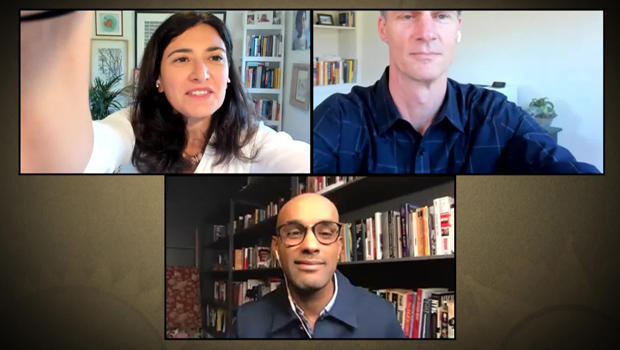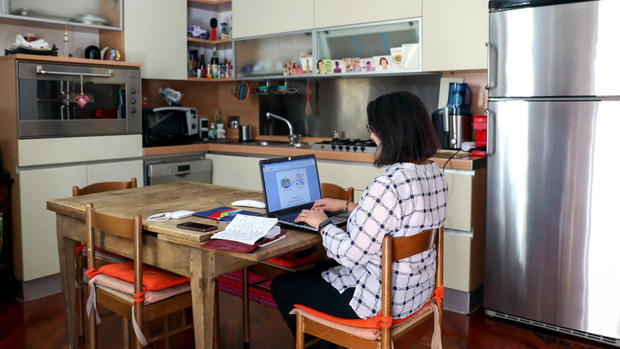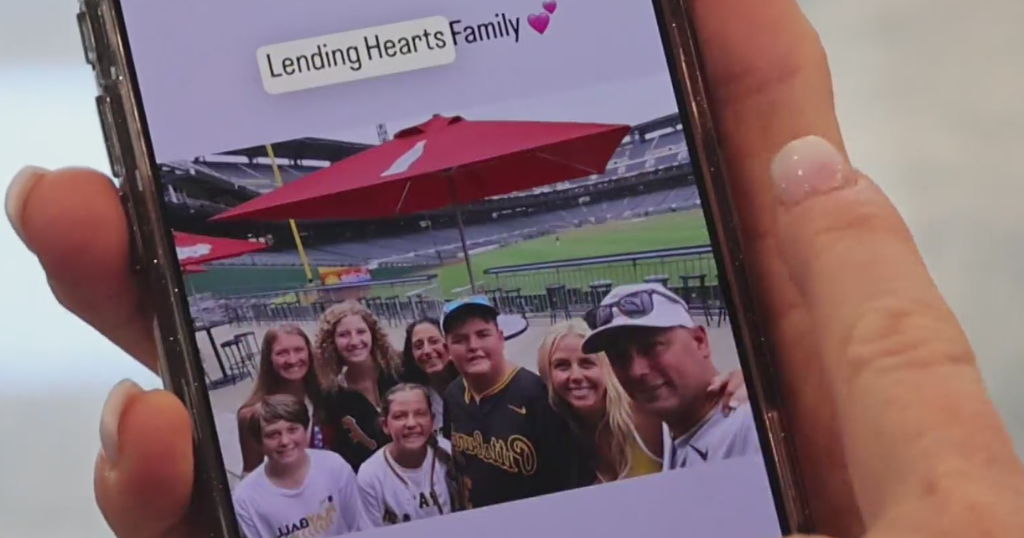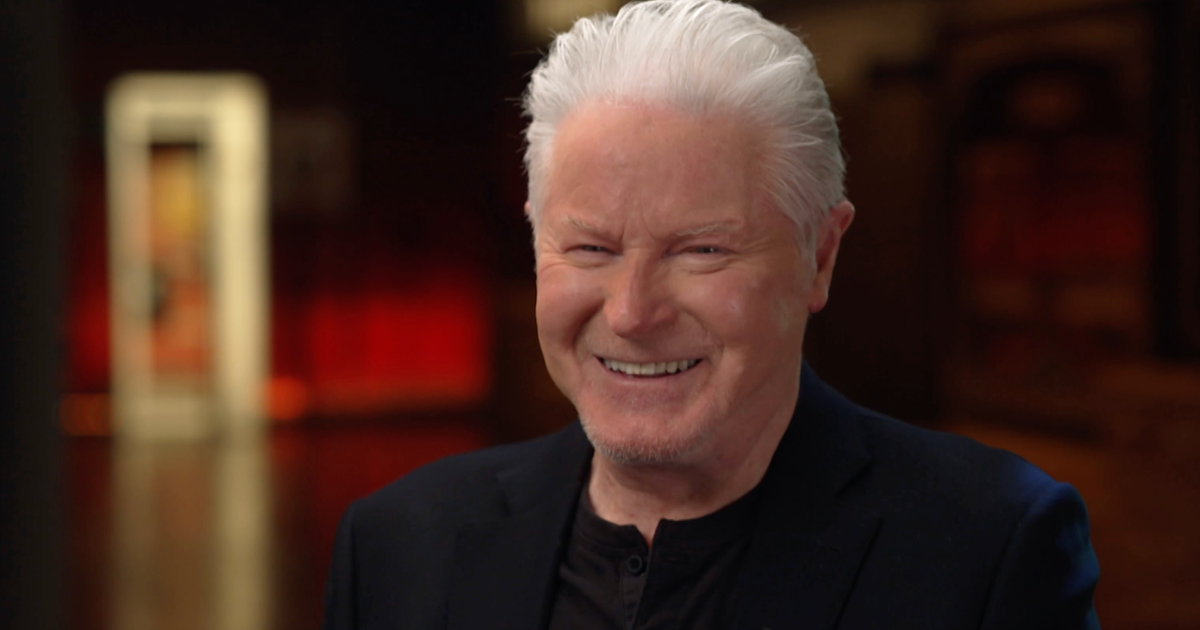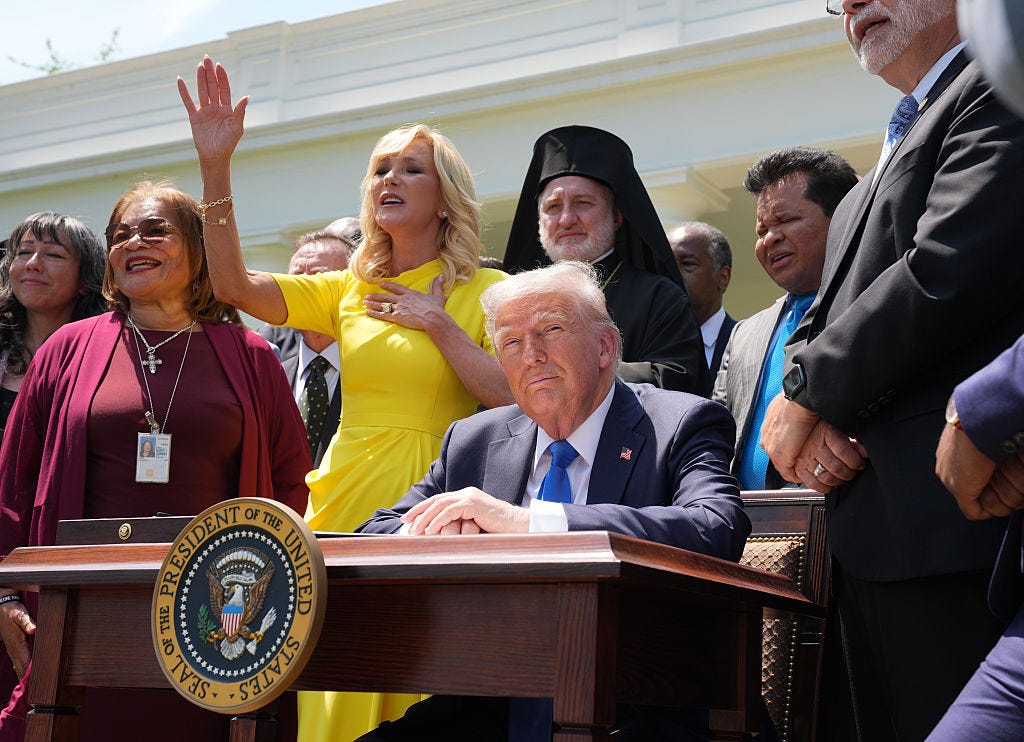Will we ever get back to the office?
Nearly a year into the pandemic, many of us have gotten used to online meetings – and it's still not easy.
Raffaella Sadun and Jeffrey Polzer know all about the difficulties of working from home. Both are professors at Harvard Business School.
Sadun said, "It all started, I think, from a very personal recognition that something was happening to the way in which we were interacting."
Sadun, an organizational economist, and Polzer, a professor in organizational behavior, began studying randomized data from the emails and online meetings of more than three million people in 16 cities around the world.
Contributor Kelefa Sanneh asked, "Were you on the team of people who loved working from home? Or were you on the team of people who couldn't wait to get back to the office?"
"I think I was on the desperate team," laughed Sadun, "on the team of trying to organize classes for my kids. So, I was definitely, you know, not enjoying my dirty martini on the couch at that point."
Their research confirms what many employees have already discovered: that where we work affects how we work. Yes, the shift to working from home really did make workdays longer – nearly an hour longer, on average. Email traffic, especially, increased after-hours.
According to Polzer, "The boundary between work and personal life, has really, in many cases, become obliterated. You know, so maybe you're sending some personal emails at night, but they're mixed in with your work emails. And by the way, you're working from your bedroom and your office and your kitchen."
With most workers at home, the average number of meetings increased, too. But they got shorter (even if they felt longer).
"You do have more meetings, and the timing between meetings, you may not have enough time to recover," Polzer said.
And there are other interruptions.
Sanneh asked, "Did you have kids wandering into your Zoom room while you were trying to teach?"
"Oh, all the time," she replied.
Some home environments are chaotic. "I was on the call with the Italian Prime Minister at some point," said Sadun. "One of my kids came in. So, you know, I think the struggle is real for people who have multiple obligations."
Other homes (like Polzer's country house) are more like an oasis. "We worked from home a lot anyway, and so the transition to working at home was fairly smooth, and also pleasant in a lot of ways," Polzer said.
Studies show working from home can be more productive. Companies can save on overhead, too.
Matt Cooper and Dev Ittycheria are both tech CEOs in New York, but they have come to different conclusions about working from home.
Cooper says no: "Everybody got more productive. you stripped three hours of commute time out of your day."
Ittycheria says yes: "We've made it clear that the expectation is that they will return back to the office that they're working out of."
"It's like this big social experiment?" asked Sanneh.
"It has been an absolutely insane year," Cooper said. "And you know, people just keep putting one foot in front of the other and working through it."
Cooper runs Skillshare, a ten-year-old company that hosts online classes. He said that people locked down at home sought out specific classes: "Topics that had sort of a self-help, stress relief, anxiety relief."
That anxiety was good news for Skillshare. With employees working from home, the company flourished. "As people were trying to find fun, constructive, self-improvement-directed activities to do with all this new free time, our numbers exploded," Cooper said.
And, he said, most of his staff didn't want to return to the office full-time: "What they wanted was to go back, call it one to three days a week. And you know, that's great, but when you're paying New York real estate, and our next office was gonna be $100,000, $120,000 a month, it's pretty expensive for one to three days a week."
So, he decided to do something radical: he shut down the physical office permanently.
"We reallocated a lot of the money that would have gone towards office, rent, utilities to an ongoing work-from-home stipend, make sure you got good internet, make sure you've got the desk setup that you need, get a good chair, all of those things," he said.
In the years before the pandemic, Yahoo and IBM both made headlines by scrapping work-from-home programs, asking many remote employees to come back. And in September, Reed Hastings of Netflix called working from home a "pure negative."
"All of these companies that said, 'We could never do it, people would never get anything done,' well, they've managed to do it," said Cooper. "So, I think we've hopefully debunked that myth. We hire people who are accountable, ambitious, aggressive, want to get things done. I don't have to be on top of them."
Dev Ittycheria runs MongoDB, a global database company headquartered in New York, with offices in 14 cities around the world.
Sanneh asked, "When did you start having that feeling that, 'Okay, we're working from home for now, but we need to get some people back in the office as soon as possible'?"
"There was a growing cohort of employees who really missed that in-person connection," Ittycheria said. "They were pushing us to say, 'When can we start opening up the offices?' Because they were anxious to meet."
When the New York office did start to reopen, in October, many employees decided not to return. "We've been surprised at how few employees took us up on the offer," Ittycheria said.
By summer Ittycheria wants the whole team back.
"Do you think people will want to come back to work in July?" Sanneh asked.
"If things are back to normal, we do expect people to be available for in-person meetings, because we think that's an important part of our culture and how we do business," Ittycheria replied.
But for now, the office has socially-distanced seating, disinfecting products, and of course a strict mask protocol. "If you have to walk around, you have to wear a mask. If you go to the restroom, you have to wear a mask," Ittycheria said.
Ava Thompson, Dev Ittycheria's assistant, told Sanneh she opted to come in and see some familiar faces."
"Was it more about getting to come here and see people, or was it more about getting out of your house?" asked Sanneh.
"It was a little of both," she laughed. "Little from column A and column B. It was nice to, like, put on an outfit and put some makeup on."
Ittycheria said working from home doesn't suit everyone: "The people who struggle from working from home are, I would say, young employees who want more social interaction and may not have ample private space to do their work; young parents who have young children at home."
And he thinks that America's empty offices will fill up again.
"Certain companies have said, 'Maybe we don't need an office, maybe people don't need to come back to work,'" Sanneh said. "Are they going to regret it?"
"I believe that they will," Ittycheria replied. "There's nothing like meeting someone face-to-face."
Professor Polzer, the behavior specialist, thinks things might never go back to the way they were.
Sanneh asked, " Is it possible that offices could be worth the huge cost?"
"It's pure tradition," Polzer said. "It's like, that's the way we've always done it. It's not that hard to think of that as an artifact of a time when we didn't have all of the tools that we now have to communicate and collaborate with each other."
But professor Sadun, the economist, said offices aren't just about efficiency: "Look, I don't know about you, I can say I miss my coworkers. I miss meeting Jeff at the coffee machine. I think it's very natural to have some aspect of our working life mixed with our social life."
For more info:
- Raffaella Sadun, professor of business administration, Harvard Business School
- Jeffrey Polzer, UPS Foundation Professor of Human Resource Management, Harvard Business School
- Skillshare
- MongoDB
Story produced by Mary Raffalli. Editor: Carol Ross.
See also:
